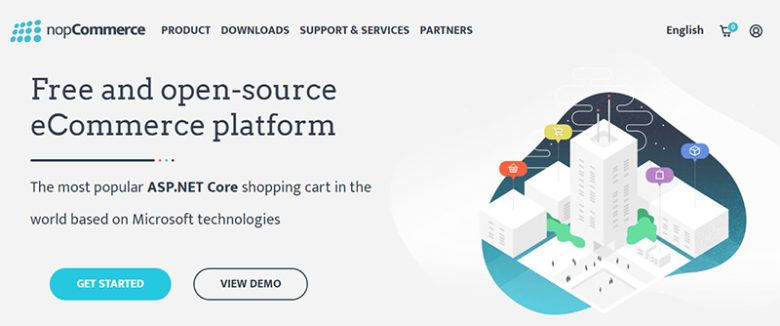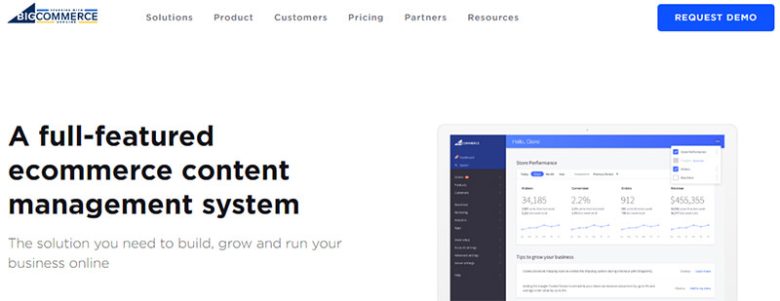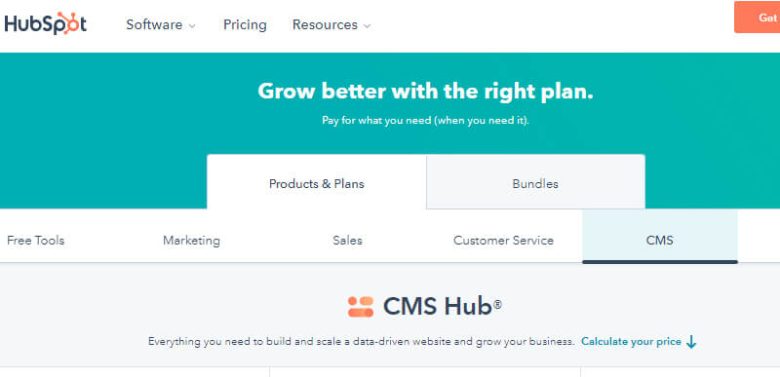The challenging task is to update with content. However, it is impossible to do this without CMS or Content Management System. CMS makes it manageable to publish content so that you build a website. Fortunately, there are many content management software systems with varying levels of technical skills:
Top 11 Content Management Software Systems
1. WordPress
WordPress in this category is a perennial leader, especially for its powerful features, excellent functionalities, support, and impressive customer service. Using this CMS, you can install the software script and create easily your website. It is a fully functional CMS software program.
Features
- Numerous publishing tools
- SEO sites
- Easy website publishing
2. Squarespace
Squarespace is suitable for small businesses and individuals selling online. A cloud-based solution offering robust customization features. It has pre-made templates suitable to promote your online business. The templates are responsive and intuitive.
Features
- Built-in mobile websites
- Automatic image scaling
- Custom WYSIWYG editor
3. Joomla
Joomla is a widely used, popular open-source CMS. Using this software program, you can track the published content on your website. Create content and manage using Joomla and no need for content management knowledge or technical skills to use the software.
Features
- CMS management
- Template override
- Article arrangement
4. nopCommerce
nopCommerce is a powerful open-source eCommerce CMS with rich functionality for building online stores of any complexity and size. It enables merchants to sell an unlimited number of products and services, and provide an exceptional customer experience. nopCommerce supports more than 60,000 live eCommerce stores.
Features:
- Responsive design out of the box.
- Multi-language, multi-currency, and RTL support.
- Many integrations and themes are available on the nopCommerce Marketplace.
5. Wix – Content Management Software
Wix is a website builder. Wix is the right choice for beginners looking for an all-in-one solution. Using Wix, edit content, create a website and publish on the web everything without writing one code line.
Features:
- No need for development skills
- An ideal choice for beginners
- Intuitive site builder
6. Shopify
Shopify is for eCommerce sites as a CMS platform. It is a content management system featuring payment processing as built-in for selling online. It is an ideal marketing strategy.
Features:
- Easy online platform
- No coding skills required
- Build eCommerce content
7. BigCommerce
BigCommerce is specifically CMS designed appropriately for eCommerce websites. It manages products in thousands and contents with ease. They have for B2Bs use-case-specific solutions.
Features:
- Manage eCommerce content
- No development experience needed
8. Drupal
Drupal is an open-source and free CMS. It offers total flexibility and manages custom posts. Out of the box, it is multilingual. Drupal is a learning curve and is useful for people comfortable with development and coding.
Features:
- Robust security
- Free start
- Automatic updates
9. Adobe Commerce – Content Management Software
Adobe Commerce is distinct. It is the same as WordPress, Joomla, and Drupal, using open-source technology. It is useful for enterprise businesses, mid-market, and B2B organizations.
Features:
- Highly customizable
- Open source technology
10. HubSpot CMS Hub
HubSpot CMS Hub is a content management system. It is integrated and designed, facilitating business owners and marketers. It includes a marketing strategy and various operation tools.
Features:
- Suitable for larger segments
- Built-in security features
- Smart content features
11. PrestaShop – Content Management Software
PrestaShop is the same as Joomla. It combines the Magento power. It takes the mid-ground between Magento and Shopify. It is an open-source platform and web developer. It offers features out-of-the-box to develop a large eCommerce store.
Features:
- Suitable for shop owners
- Technical experience required
- Available in 65 languages
Businesses do not know to code from scratch a website. However, these content management systems and software quickly and easily create a custom website. With the right tools, you can give your visitors a seamless experience. Ensure the tools include pre-designed templates, built-in features, and extensions for a custom site.













